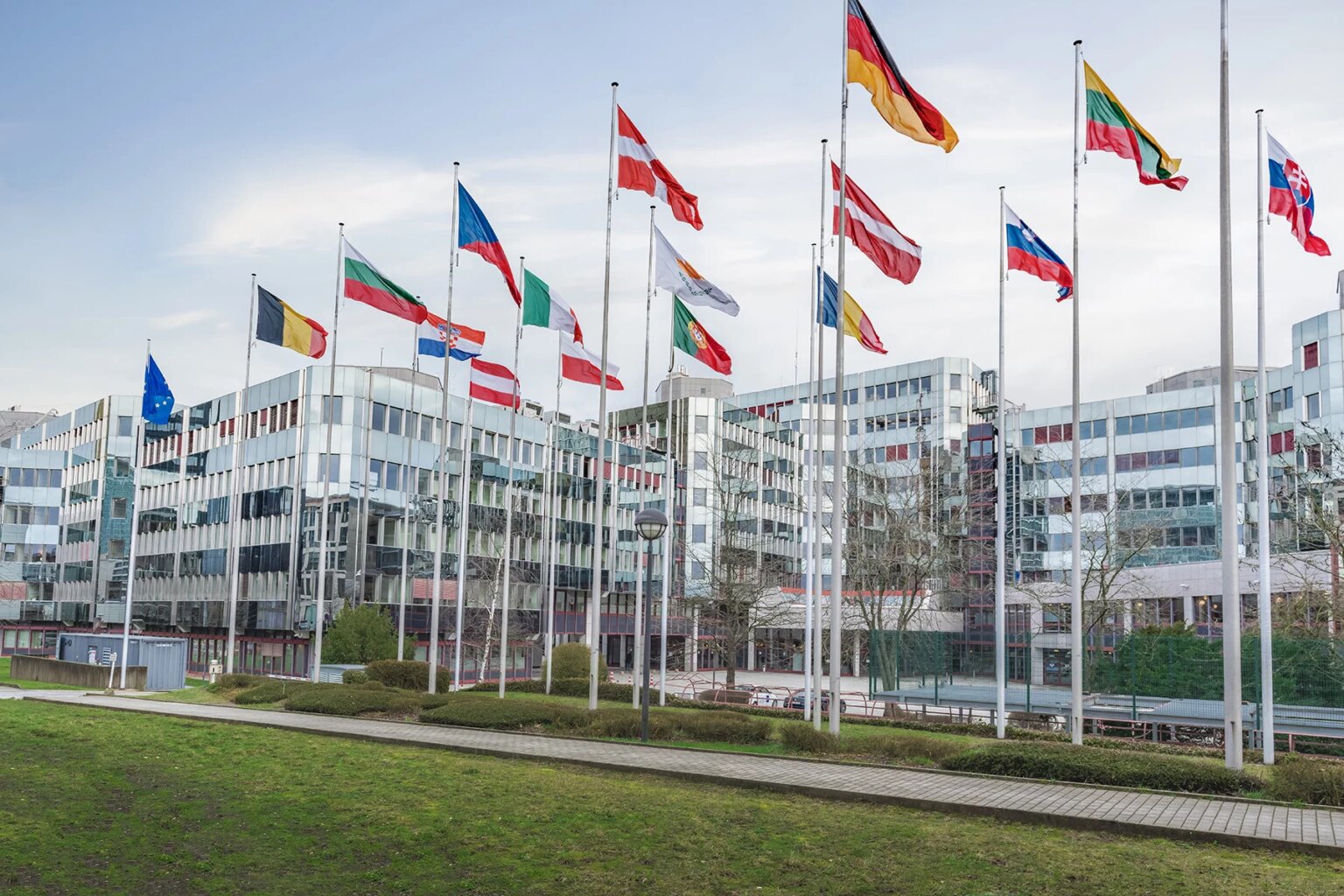Working in Luxembourg is an attractive option for an increasing number of expats. However, before you start searching for your dream job in the Grand Dutchy, you should check what kind of documents you need to legally work there, as most people from outside the European Union (EU) will require a work visa.
There are a few different routes to obtaining a work visa for Luxembourg, and to help you understand the requirements and process, this article covers the following:
- Working in Luxembourg
- Who needs a work visa in Luxembourg?
- Salaried worker visas in Luxembourg
- Highly qualified worker visas (EU Blue Cards)
- Young au pair visas in Luxembourg
- Investor visas in Luxembourg
- Researcher visas in Luxembourg
- Work visas in Luxembourg for students
- Work visas for freelancers, entrepreneurs, and the self-employed
- Work visas for seasonal/temporary workers
- Volunteering and work experience in Luxembourg
- Work visas in Luxembourg for family members
- Appeals and complaints about work visas in Luxembourg
- Useful resources
The Relocator
Planning a new life in Luxembourg? Give yourself some peace of mind with The Relocator. On their easy-to-use platform, you'll be able to compare your options quickly, getting quotes from some of the biggest names in global relocations. Move abroad confidently with The Relocator.
Working in Luxembourg
Luxembourg is an increasingly popular destination for expats, thanks to its high average wages, low crime rates, and great transport links. Companies like Amazon, Paypal, and Skype have chosen to set up shop there, making it more attractive for workers in the technology sector. However, the most important industry in Luxembourg is finance, which is directly or indirectly responsible for just under 30% of the country’s jobs.

Luxembourg is one of the most cosmopolitan places on earth, with around 47% of the population hailing from other countries. This can be seen most clearly in the cities, where foreign workers usually live. Due to its location, Luxembourg also attracts almost 200,000 cross-border commuters who actually live in France, Germany, or Belgium. In fact, around 70% of the country’s workforce consists of either immigrants or cross-border commuters.
Luxembourg is part of the European Union, so its workers are protected by EU labor laws. The Ministry of Foreign and European Affairs (Ministère des Affaires étrangères et européennes in French, and Ministerium für auswärtige und europäische Angelegenheiten in German), which is a subsection of the Immigration Directorate, grants all visas.
Your chances of finding a job in Luxembourg will depend on your chosen sector. For instance, the country is particularly welcoming – and in need of – skilled workers, as its economy relies heavily on banking, insurance, and more recently, technology. Therefore, it offers the EU Blue Card for a number of tech jobs that come with a lower salary requirement. Those wanting to apply must have an offer of only 1.2 times the average gross salary in Luxembourg (€67.824), rather than the usual 1.5 (€84.780) required for other sectors.
Who needs a work visa in Luxembourg?
Citizens of most EU countries – except for Croatia – do not require a permit to work in Luxembourg. Additionally, citizens of member states of the European Free Trade Association (EFTA) which includes Switzerland, Iceland, Norway, and Liechtenstein can work there without a special permit. However, non-EU citizens will need to obtain a work visa to legally work in the country.

All newcomers to Luxembourg need to register their arrival at their local Census Office (bureau de la population in French, Einwohnermeldeamt in German). This is mandatory if you plan to spend more than 90 days in the country, and you will need to bring your passport or ID card with you.
The process is a little more complex if you are a non-EU citizen. You will usually require an employment contract first and must submit an application for temporary authorization to stay at the Immigration Directorate (Department for Foreigners) before entering Luxembourg. On arrival, you will then need to pass a medical check before you can apply for a residence permit.
It is important to note that now the UK is no longer part of the European Union, the status of British citizens has changed, and they will need to go through the same procedures as other non-EU workers.
If you need assistance with relocation and immigration in Luxembourg, there is plenty of support available. Services such as Relocate me to LUX specialize in helping internationals with all elements of their move abroad, including visas.
Types of work visa in Luxembourg
There are several different types of work visas available in Luxembourg, including:
- Salaried workers
- Highly qualified workers
- Young au pairs
- Investors
- Researchers
Salaried worker visas in Luxembourg
This visa is available for workers who have a job offer from a company in Luxembourg. The employer must follow several steps in the application process.
Requirements
The employer handles most of this application, so you will first need to find a company to hire you. In theory, this visa is only granted when there are no suitable candidates available within Luxembourg or the EU job market.
How to apply
The employer must first declare a vacant position to the National Employment Agency – ADEM (Agence pour le développement de l’emploi in French). If there is no suitable candidate in the local or EU job market to fill the vacancy within three weeks, the employer can issue an employment contract to a non-EU candidate.

The employer will need to submit an application to the director of the ADEM, requesting a certificate of permission. Once this is done, the employer and employee can sign a contract.
The employee must request his own residence permit, however, they can ask the employer for help and supporting documents.
Visa costs
There is a standard fee of €80, which also applies to renewals.
Visa length
The visa has a maximum duration of one year, after which it can be renewed for a maximum of three years. Notably, the applicant cannot change jobs or sectors without government permission before renewing the visa for the first time.
Highly qualified worker visas (EU Blue Cards)
The highly qualified worker visa is also known as the EU Blue Card. The procedure for obtaining one is similar to the salaried worker visa but is only available for particular jobs.
Requirements
Similar to a salaried worker visa, you must have an offer of employment before you can apply for an EU Blue Card. This must be for highly qualified work. Furthermore, the salary must be either 1.5 times the average gross salary in Luxembourg or, for certain desirable professions, 1.2 times the average. These professions are usually in the technology sector. You will also need evidence of your diplomas and professional qualifications, which must be provided in English, French, or German.
How to apply
The employer must declare a vacant position to the ADEM, then sign a contract with the highly qualified worker. The employee will need to provide their documents, including their passport, CV, qualifications, and employment contract.
Visa costs
There is a standard fee of €80, which also applies to renewals.
Visa length
The EU Blue Card is initially valid for four years. If the contract is less than four years, it is valid for the period of the contract plus three months. It can also be renewed.
Young au pair visas in Luxembourg
An au pair visa is only valid for people aged 18 to 30. You will need an approved host family to apply for this visa.
Requirements
You must have proof of education, showing that you attended school until a minimum age of 17. Additionally, you will need to show basic knowledge of the host family’s spoken language. You must also have some knowledge of either English, French, German, or Luxembourgish.
Finally, you must have a signed hosting agreement with the host family and a medical check-up showing that you are able to carry out the duties of an au pair.
How to apply
You will need to apply for an au pair visa before entering Luxembourg. Notably, you cannot enter the country before your visa is approved. The au pair will need to submit the application but can ask the host family for help and supporting documents.
Visa costs
This visa costs €80.
Visa length
The visa has a maximum duration of one year. It is important to note that an au pair visa cannot be renewed, and an au pair cannot transfer to another visa.
Investor visas in Luxembourg
There are high financial requirements for an investor visa, which is available to those who are planning to support the economy in Luxembourg.
Requirements
To apply for this visa, you must be able to invest one of the following amounts:
- At least €500,000 in an existing company registered in Luxembourg
- At least €500,000 in a new business that will be registered in Luxembourg and will create at least five jobs
- At least €3,000,000 in a management and investment structure registered in Luxembourg
- At least €20,000,000 to be deposited with a financial institution established in Luxembourg
You will also need to commit to maintaining your investment for a period of time, which is usually five years.
How to apply
To obtain an investor visa, you will need to gain approval from either the Ministry of the Economy or the Ministry of Finance. You must provide proof of your project plans, which can vary on a case-by-case basis.
Visa costs
There is a standard fee of €80, which will be charged again if the worker renews the permit.
Visa length
The visa has a maximum duration of three years, after which it can be renewed as long as the investment conditions are still being met.
Researcher visas in Luxembourg
A researcher visa is available to academics who have signed a hosting agreement with an educational institution in Luxembourg.
Requirements
You will need a higher education diploma that allows you to access doctorate programs. You should also have a signed hosting agreement with your research institute of choice.
How to apply
The research institute must first apply for accreditation, then draw up a hosting agreement with the applicant. You will need to apply for your visa before entering Luxembourg, and you should not enter before it is approved.
Visa costs
There is a standard fee of €80, which also applies to renewals.
Visa length
The visa is valid for one year, or for the duration of the research project. If the research is ongoing, renewals are possible.
Work visas in Luxembourg for students
Students must provide proof of sufficient resources in order to apply for a student visa. While studying in Luxembourg, you have the right to work up to 15 hours per week, or more during the summer and other holiday periods, in any job you choose.

You can read more about the student visa and the different types of educational institutions on offer in the Grand Dutchy in our article on studying in Luxembourg.
Work visas for freelancers, entrepreneurs, and the self-employed
As a self-employed worker, you will need to provide evidence of relevant qualifications in order to receive a visa. You must also provide proof that you have sufficient resources to carry out your plans.
Moreover, when you apply for your visa, you will need to show that your business proposal will serve the interests of the country.
A self-employed residence permit costs €80 and is valid for three years. Renewals are also possible.
Work visas for seasonal/temporary workers
A seasonal work visa is only available for specific jobs that are classified as seasonal activities.
These include harvesting crops, tour guides and other holiday jobs, and short-term hospitality roles.
To get this visa, you will first need a signed seasonal job contract. The company must declare a vacant position. If there are no local or EU candidates that are able to fill the position within three weeks, the company can write to the director of ADEM, requesting a permission certificate to hire a non-EU national. You will need this permission certificate, along with your signed contract, to request the visa.
A seasonal worker’s visa is valid for no more than five months over a total period of 12 months. Notably, seasonal workers cannot change to a different visa category.
Volunteering and work experience in Luxembourg
You must be under 30 years old to obtain a volunteer visa for Luxembourg. The National Youth Service or SNJ (Service national de la jeunesse in French) must approve your application. You will also need proof from your volunteer program, including confirmation of living expenses.
Volunteer visas are valid for one year. They are not renewable, and volunteers cannot change to a different visa category.
Work visas in Luxembourg for family members
Family reunification covers non-EU nationals who want to bring family members to Luxembourg. This includes spouses or registered partners, and unmarried children under 18. In some cases, parents and older children may be given permission. However, this is on a case-by-case basis.

If you are living in Luxembourg, you will effectively act as the sponsor for your family members. You will need to demonstrate your intention to apply for a long-term residence permit, provide proof of resources, and have suitable accommodation. You will also need health insurance coverage for your family members.
Once in Luxembourg, family members can apply for a work permit. During their first year of residence, they will be treated as non-EU nationals, and can only apply for jobs if there are no suitable local or EU candidates. After one year, this requirement stops.
Appeals and complaints about work visas in Luxembourg
If your application for a visa is denied, you can appeal. To do this, you will need to make your appeal to the Administrative Tribunal.
For problems regarding a residence permit, you can go to the Ministry of Foreign and European Affairs, which has ultimate control over decisions about visas and permits.
Useful resources
- Guichet.lu – a government website that provides more information about applying for various work permits in Luxembourg
- Guichet.lu – provides information for British nationals in Luxembourg who are affected by Brexit
- ADEM – the national jobseekers’ portal in Luxembourg which provides job listings and other important information about working in the country
- Ministry of Foreign and European Affairs – provides relevant, up-to-date news for those looking to live and work in Luxembourg









